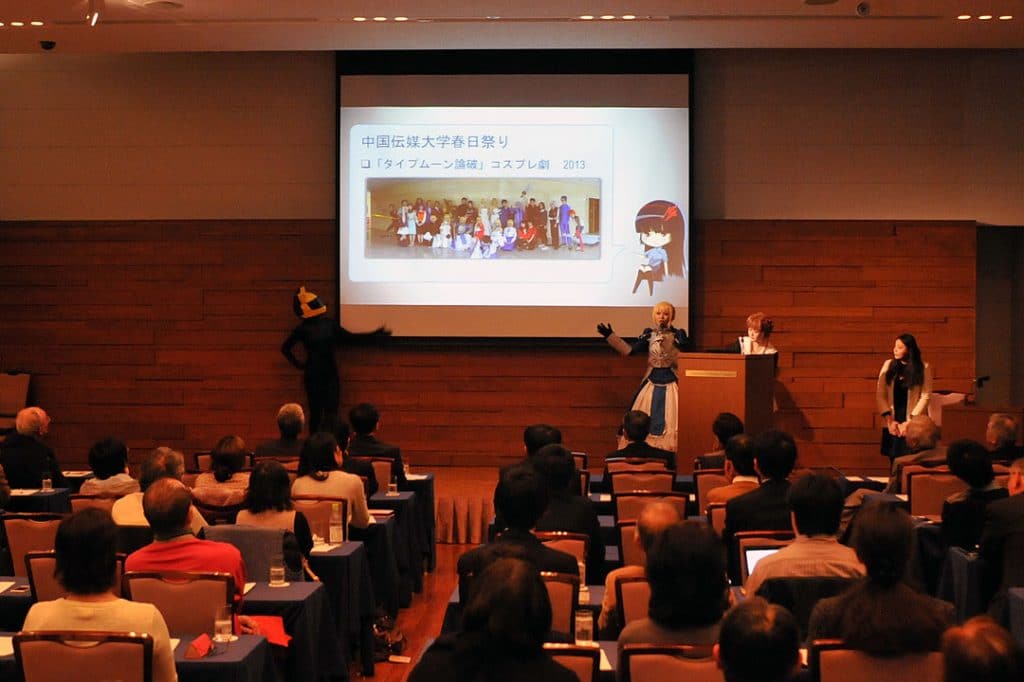Can a shared love of manga, anime, and cos-play help draw neighbors in Northeast Asia closer together? What mutual influences can be found in today’s popular culture in China, Japan, and Korea?
These questions were the focus of the third seminar in JCIE’s Rediscovering Common Bonds among Japan, China, and Korea series, which focused this time on the theme of “Interacting Cultures.”
The seminar brought Associate Professor Masako Furuichi of Peking University along with students who belong to a club at that university for fans of Japanese manga, anime, and gaming (the club has about 2,800 members, 800 of whom are at the Peking University). Participants shared a presentation and talked about the impact of Japanese culture on China. They were joined by international politics scholar Associate Professor Kwon Yongseok of Hitotsubashi University, who is also an expert on Japanese and Korean pop culture. Through these discussions, participants gained a deeper understanding of how Japanese, Chinese, and Korean cultures are interacting to form a new form of cultural exchange.
Session 1: Interacting Cultures among China, Japan, and Korea
Facilitator
Yoshibumi Wakamiya, Senior Fellow, JCIE
Presentation: Introduction of Peking University’s Original Fire Animation and Comics Association
Xuena Wang, Jia Kong, Shuo Li
Lectures
Acceptance of Japanese Pop Culture among Young Chinese People
Masako Furuichi, Associate Professor, Department of Japanese Language and Culture, School of Foreign Languages, Peking University
Pop Culture Interchange between Japan and Korea: “Japanese Wave,” “Korean Wave”
Yongseok Kwon, Associate Professor, Hitotsubashi University Graduate School of Law
Session 2: Building New Cultural Interchange in Japan, Korea, and China
Moderator
Yoshimi Ishikawa, author, New Japan-China Friendship Committee for the 21st Century
Panel
Masako Furuichi, Yongseok Kwon, and Peking University students
Closing Statement
Akio Okawara, President and Chief Executive Officer, JCIE
January 16, 2015—A Fierce and Mutually Beneficial Rivalry
November 25, 2014—Opening up Future Possibilities through Stage and Video

